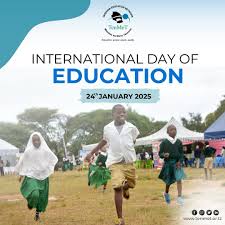Today, as Africa observes the International Day of the African Child under the theme “Planning and Budgeting for Children’s Rights”, Tanzania has seized the moment to reaffirm its strong commitment to transforming its education system to meet the needs of a young, dynamic, and rapidly growing population. With more than 60% of Africa’s population under the age of 25, the stakes are high—and Tanzania is aiming to turn this demographic reality into a competitive advantage.
In a reflection shared to mark the day, Tanzania’s leadership pointed to education as the cornerstone of its national development strategy. The recent National Budget presentation underscored this, prioritizing education not just in words but through substantial financial investment. Education is also a central pillar in the ruling party’s manifesto.
Over the past few years, Tanzania has embarked on one of the most far-reaching education reforms on the continent. This includes overhauling curricula, expanding access to vocational and technical training, embedding digital skills in all levels of schooling, and strengthening tertiary education infrastructure. These initiatives aim to improve academic outcomes and align the country’s workforce with the demands of the 21st-century global economy.
A highlight of this effort is the revised Education and Training Policy, originally introduced in 2014 and updated in 2023. Under this updated framework, Tanzania introduced a dual-stream secondary education system: one academic (General) and one skills-based (Vocational). This model allows students to choose paths suited to their strengths and ambitions, including subjects like agriculture, entrepreneurship, ICT, mechanics, mining, and even beekeeping. Since the policy’s implementation, enrolment in vocational programs has grown by more than 30%.
Recognising the importance of digital transformation, Tanzania is also introducing computer coding in primary schools, rolling out smart classrooms, and launching e-learning platforms to bridge the urban-rural education gap. Organisations like the Tamani Foundation and ThinkYoung Coding School have played a vital role in these early stages, and their work was showcased during the eLearning Africa conference hosted in Tanzania recently.
The government has matched its policy commitments with record investment. Between 2021 and 2024, more than TSh 1.1 trillion was spent on new classrooms, science labs, boarding facilities, and housing for teachers. The flagship Higher Education for Economic Transformation Project, with funding of TSh 972 billion, is expanding university campuses across the country, especially in underserved areas. To support access, the government has issued TSh 2.76 trillion in student loans over four years—helping thousands of young Tanzanians pursue tertiary education.
Tanzania’s education drive is also underpinned by a strong equity and inclusion agenda. The abolition of secondary school fees and the introduction of re-entry policies for young mothers have significantly increased enrolment and retention of girls. As of January 2025, over 13,000 girls who had previously dropped out due to pregnancy have returned to school. The country is also improving access for students with disabilities, including designing inclusive curricula and accessible infrastructure.
To address a long-standing challenge in African education systems, Tanzania has launched a massive teacher recruitment campaign, hiring over 30,000 teachers in two years. A review of compensation and working conditions is also underway to elevate the status and morale of the teaching profession.
Beyond academic skills, the government has introduced a new compulsory subject—Tanzania’s History and Ethics—to instill a sense of civic duty, national pride, and integrity in learners at all levels, including those in international schools.
Recognising that government cannot do it alone, Tanzania has developed a landmark public-private partnership blueprint for education. Launched last year, the policy framework provides clarity on investment incentives, tax regulations, and roles for private actors in education. Since its adoption, new partnerships have supported the rollout of vocational programs, e-learning solutions, and improved school infrastructure.
As Tanzania reflects on this year’s theme for the International Day of the African Child, it acknowledges that meaningful commitment to children’s rights—especially their right to quality education—requires more than slogans. It demands sustained, strategic, and transparent investment from both the public and private sectors.
In the words of the country’s leadership: “It’s easy to say ‘education, education, education.’ It’s harder to back it up with real money – both public and private.”
With these bold steps, Tanzania positions itself not just as a country educating its youth, but as a nation preparing a new generation of ethical, skilled, and future-ready leaders who will help shape Africa’s next chapter.
